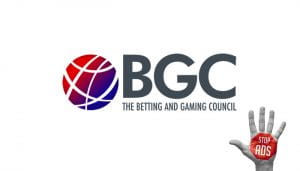BGC CEO Dugher Against Gambling Advertisement Ban
According to Betting and Gaming Council (BGC) Chief Executive Michael Dugher, the wider audience finds advertisements to be ‘annoying’ in general, but not gambling advertisements in specific.
 The BGC CEO and former Shadow Secretary of State for the DCMS, writing in the parliamentary magazine The House, slammed the anti-gambling lobby’s “prohibitionists” while acknowledging that the sector is “reassured” by ministers “evidence-based approach”.
The BGC CEO and former Shadow Secretary of State for the DCMS, writing in the parliamentary magazine The House, slammed the anti-gambling lobby’s “prohibitionists” while acknowledging that the sector is “reassured” by ministers “evidence-based approach”.
Betting business sponsorships of sports teams and television ads have been targeted as a key area for modification of the 2005 Gambling Act, with betting firm sponsorships of sports teams and TV ads in specific.
Dugher, on the other hand, responded to them by?citing the Campaign Against Gambling Ads (CAGA) bus tour across the UK, which called for a ban on gambling advertising and sponsorships.
As a result, the CEO spoke with a group of statisticians and group discussion specialists who have been in?various regions across the country to gather public perception on the sector.
Activists for gaming regulation reform have pointed to a business advertisement as a source of gambling-related harm, as well as the possibility for marketing to influence minors and the problems that may arise.
The Response of Dugher
However, the BGC CEO had a response to this as well.
“It has been (outrageously) suggested by prohibitionists that the regulated industry tries to exploit football’s popularity to encourage under-18s to gamble,” – said Dugher.
Dugher also mentioned statements made earlier this month by DCMS Secretary John Whittingdale, who is in charge of the Gambling Act review. The Secretary of State said in a statement to parliament that research into the connection between advertisement and gambling did not show a direct correlation between exposure to the advertisement and the emergence of problem gambling.
Professor Ian McHale of the University of Liverpool discovered ‘no evidence’ of betting sector advertising having any effect on customers’ involvement in the activities, according to a study commissioned by the English Football League (EFL).
Dugher has maintained that there is very little connection between gambling-related harm and industry advertising, citing the UK Gambling Commission (UKGC) study that suggests that the major types of gambling performed by someone under the age of 16 are private bets among friends, card games, machines, and similar games.?
These activities are outside the jurisdiction of licensed betting providers, contradicting the CAGA’s allegation that up to 450,000 minors bet regularly, which it restarted on its recent trip.
The UK’s Issue With Young People and Gambling
The number of young people confessing to gambling in the previous week has decreased from 23% in 2011 to 11% in 2019, according to UKGC statistics provided by the BGC Chief. Nevertheless, since the end of that year, the percentage of gamblers evaluated as being at ‘medium risk of harm’ has decreased from 1.4 percent to 0.7 percent, with the UK’s problem gambling rate maintaining constant at 0.4 percent.
Dugher also used the occasion to reaffirm the gambling industry’s current social responsibility activities, as well as a new code of conduct that was announced earlier this year. BGC members are no longer allowed to sponsor children’s football equipment under the new rule, voluntarily guaranteeing that 20% of TV and radio commercials are now entirely safer gambling messages.
 By John Isaac,
By John Isaac,

 Notre Dame Men’s Swimming Suspended Over Gambling Allegations
Notre Dame Men’s Swimming Suspended Over Gambling Allegations Two Full Casino Resorts Open By Year’s End in Virginia
Two Full Casino Resorts Open By Year’s End in Virginia High Bettor Turnout for Summer Olympics
High Bettor Turnout for Summer Olympics Sports Betting Slowdown Waits for Jump From NFL
Sports Betting Slowdown Waits for Jump From NFL US Federal Gambling Excise Tax on the Chopping Block
US Federal Gambling Excise Tax on the Chopping Block New Jersey DGE Fines Caesars Sportsbook
New Jersey DGE Fines Caesars Sportsbook MGM Prepared to Do Anything to Acquire Entain
MGM Prepared to Do Anything to Acquire Entain Caesars Reveals Plans to Open a Temporary Casino by July Next Year
Caesars Reveals Plans to Open a Temporary Casino by July Next Year Seminole Tribe of Florida Files Replies in the United States Court of Appeals for the District of Columbia
Seminole Tribe of Florida Files Replies in the United States Court of Appeals for the District of Columbia Hollywood Casino Riverboats to Be Moved Inland
Hollywood Casino Riverboats to Be Moved Inland